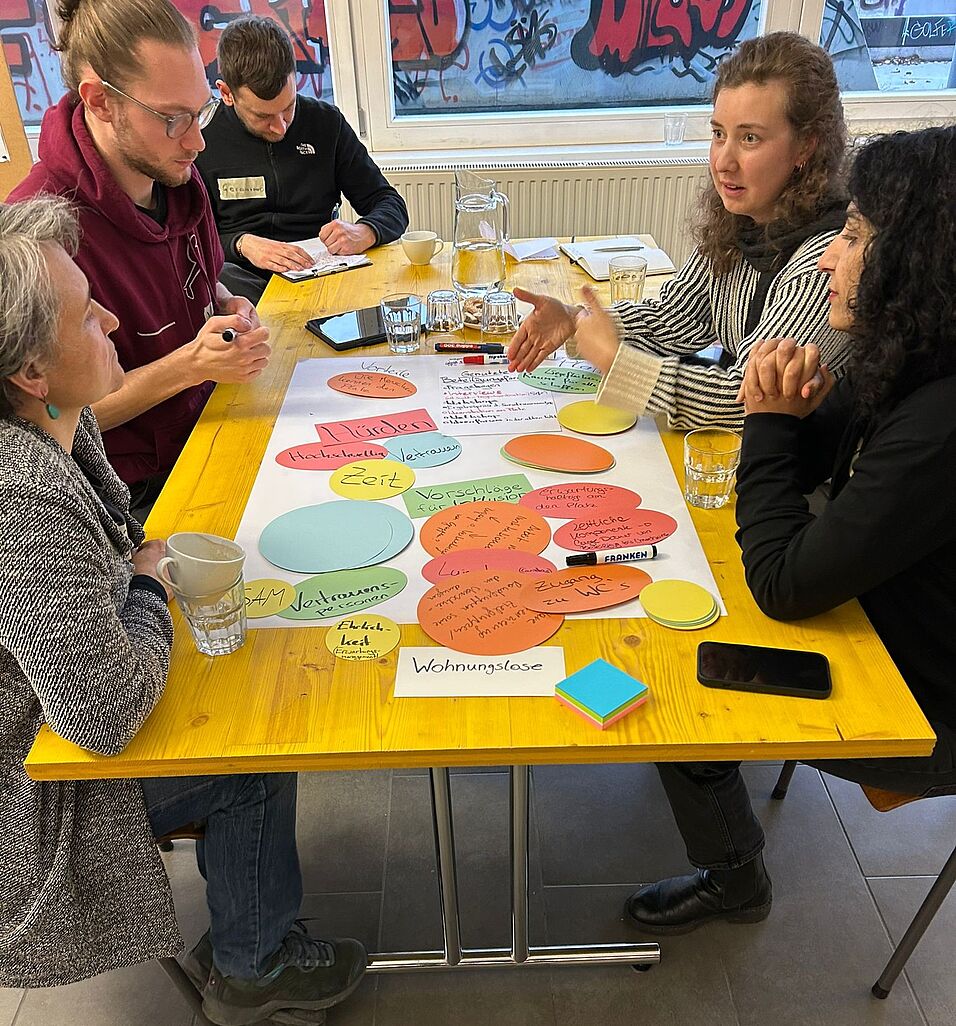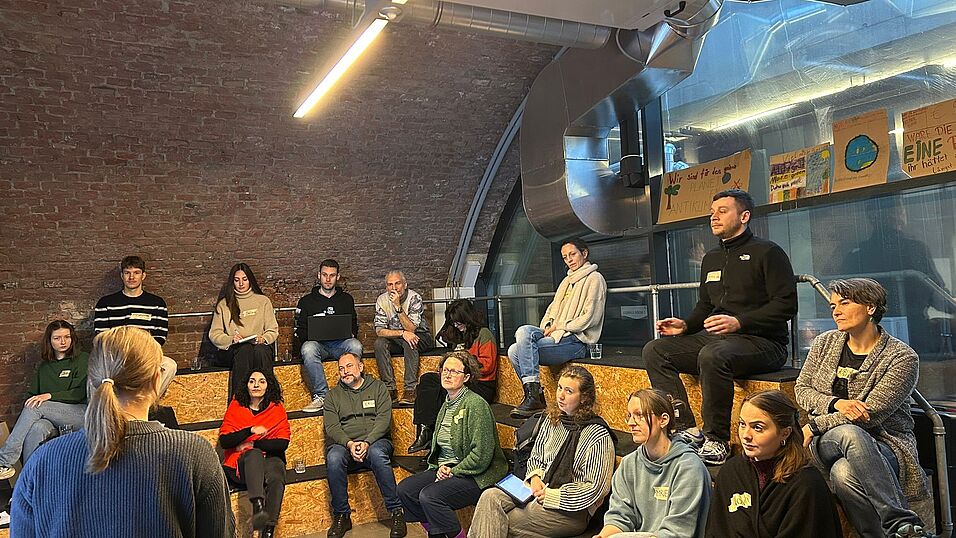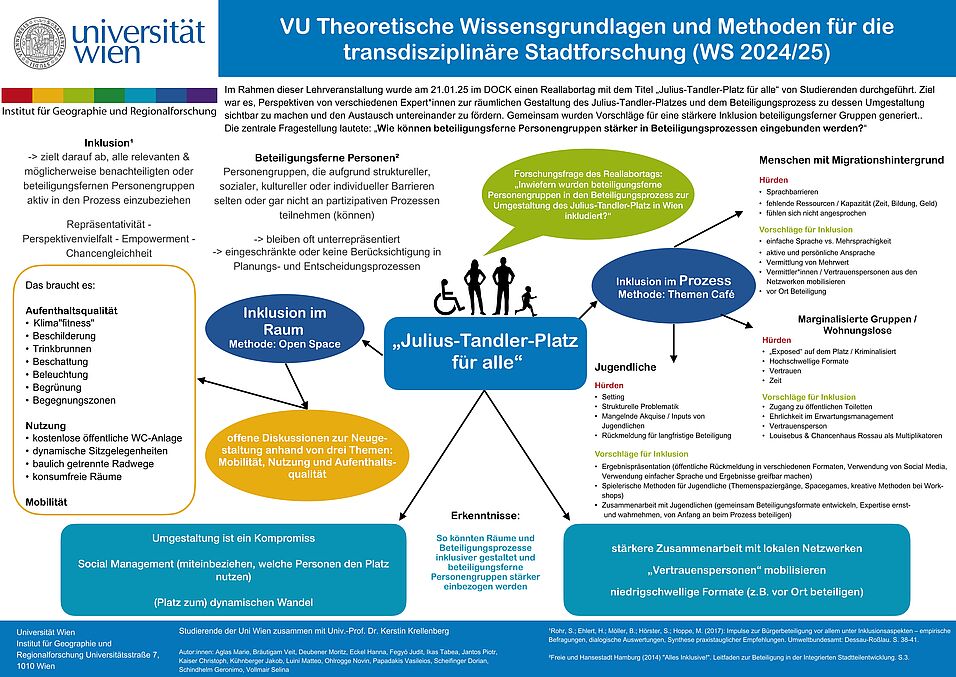Throughout the semester, the students designed a real-world laboratory (Reallabor) focused on this topic and organized a Real-Lab Day on January 25, 2025, based on the guiding question:
To what extent were marginalized or hard-to-reach groups included in the participatory process for the redesign of Julius-Tandler-Platz in Vienna?
The goal of the Real-Lab Day, held at Dock Wien, was to explore this question in a workshop format with diverse actors from urban practice. Participants included representatives from the City’s Addiction and Drug Coordination unit, the youth center Juvivo.09, the Children’s University (Kinderuni), as well as politicians and city administrators.
Focusing on dialogue and exchange between actors, the students used participatory methods such as the “World Café” and “Open Space.” These, combined with expert inputs and excellent moderation, helped to create a space for productive discussions. Participants exchanged views on various topics, reflecting both the challenges and the opportunities of including marginalized groups in urban development processes.
The outcomes of the Real-Lab Day are summarized on the poster on the right.




